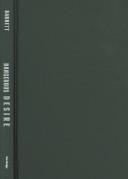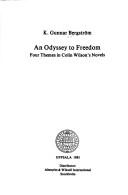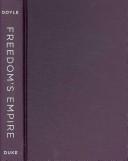| Listing 1 - 10 of 47 | << page >> |
Sort by
|
Book
ISBN: 077466648X 9780774666480 Year: 1973
Abstract | Keywords | Export | Availability | Bookmark
 Loading...
Loading...Choose an application
- Reference Manager
- EndNote
- RefWorks (Direct export to RefWorks)
Book
ISBN: 1139890719 110724126X 1107559367 1107247551 1107250048 1107250870 1139060880 1107248388 110724921X 9781107559363 9781139060882 9781107016255 9781107247550 9781107250048 9781299749030 1299749038 9781107248380 1107016258 9781139890717 9781107250871 Year: 2013 Publisher: Cambridge Cambridge University Press
Abstract | Keywords | Export | Availability | Bookmark
 Loading...
Loading...Choose an application
- Reference Manager
- EndNote
- RefWorks (Direct export to RefWorks)
A contemporary of William Shakespeare and Ben Jonson, Christopher Marlowe was one of the most influential early modern dramatists, whose life and mysterious death have long been the subject of critical and popular speculation. This collection sets Marlowe's plays and poems in their historical context, exploring his world and his wider cultural influence. Chapters by leading international scholars discuss both his major and lesser-known works. Divided into three sections, 'Marlowe's works', 'Marlowe's world', and 'Marlowe's reception', the book ranges from Marlowe's relationship with his own audience through to adaptations of his plays for modern cinema. Other contexts for Marlowe include history and politics, religion and science. Discussions of Marlowe's critics and Marlowe's appeal today, in performance, literature and biography, show how and why his works continue to resonate; and a comprehensive further reading list provides helpful suggestions for those who want to find out more.
Liberty in literature. --- Renaissance --- Freedom in literature --- Liberty as a theme in literature --- Marlowe, Christopher, --- Criticism and interpretation. --- Arts and Humanities --- Literature

ISBN: 1135877955 1135877963 9786610168132 1280168137 0203313461 9780203313466 0415970490 0415970504 9781135877910 9781135877958 9781135877965 9780415970495 9780415970501 075315837X Year: 2004 Publisher: New York Routledge
Abstract | Keywords | Export | Availability | Bookmark
 Loading...
Loading...Choose an application
- Reference Manager
- EndNote
- RefWorks (Direct export to RefWorks)
This is an important work that calls attention to how post-1960s literary representations of rape have shaped the ways in which both sexual and social freedoms are imagined in American literature and culture.
American literature --- Sexual freedom in literature. --- African Americans --- African Americans in literature. --- Sex crimes in literature. --- Liberty in literature. --- Rape in literature. --- Freedom in literature --- Liberty as a theme in literature --- Afro-Americans in literature --- Negroes in literature --- History and criticism. --- African American authors --- Intellectual life
Book
ISBN: 9789461314284 Year: 2015 Publisher: Leuven Uitgeverij Van Halewyck
Abstract | Keywords | Export | Availability | Bookmark
 Loading...
Loading...Choose an application
- Reference Manager
- EndNote
- RefWorks (Direct export to RefWorks)
Rector en voormalig senator Rik Torfs bundelt zijn beste columns en opiniestukken van de afgelopen vijf jaar. Daarin gaat hij geen enkel heet hangijzer uit de weg. In zijn kenmerkende, poëtische maar bevlogen stijl heeft Torfs het over heilige huisjes zoals het geloof, het biechtgeheim, de nationale en de internationale politiek, theologie en euthanasie, maar evengoed over meer wereldse onderwerpen zoals Brussel, reizen met de trein, manchetknopen, kunst en literatuur. Het leven en hoe het te leiden volgens een van Vlaanderens scherpste pennen.

ISBN: 9155414052 Year: 1983 Volume: vol 47 Publisher: Uppsala : Almqvist & Wiksell : Acta universitatis upsaliensis,
Abstract | Keywords | Export | Availability | Bookmark
 Loading...
Loading...Choose an application
- Reference Manager
- EndNote
- RefWorks (Direct export to RefWorks)
Liberty in literature --- Freedom in literature --- Liberty as a theme in literature --- Liberty in literature. --- Wilson, Colin, --- Criticism and interpretation. --- كولن ولسون --- ولسون، كولن --- ウィルソン, コリン, --- Uilson, Kolin, --- Уилсон, Колин, --- Wilson (colin) --- Critique et interpretation
Book
ISBN: 9788876673511 Year: 2008 Publisher: Firenze : Cesati,
Abstract | Keywords | Export | Availability | Bookmark
 Loading...
Loading...Choose an application
- Reference Manager
- EndNote
- RefWorks (Direct export to RefWorks)
Liberty in literature --- Liberty --- Renaissance --- Civil liberty --- Emancipation --- Freedom --- Liberation --- Personal liberty --- Democracy --- Natural law --- Political science --- Equality --- Libertarianism --- Social control --- Freedom in literature --- Liberty as a theme in literature --- Philosophy --- History --- Political aspects --- Religious aspects
Book
ISBN: 3873290839 Year: 1974 Publisher: Berlin
Abstract | Keywords | Export | Availability | Bookmark
 Loading...
Loading...Choose an application
- Reference Manager
- EndNote
- RefWorks (Direct export to RefWorks)
Liberty in literature --- Polish drama --- Power (Social sciences) in literature --- Freedom in literature --- Liberty as a theme in literature --- History and criticism --- Drama --- Thematology --- Polish literature --- anno 1900-1999

ISBN: 9780822341598 082234159X 9780822341352 0822341352 9786613022585 1283022583 0822388731 Year: 2008 Publisher: Durham, N.C. Duke University Press
Abstract | Keywords | Export | Availability | Bookmark
 Loading...
Loading...Choose an application
- Reference Manager
- EndNote
- RefWorks (Direct export to RefWorks)
In this pathbreaking work of scholarship, Laura Doyle reveals the central, formative role of race in the development of a transnational, English-language literature over three centuries. Identifying a recurring freedom plot organized around an Atlantic Ocean crossing, Doyle shows how this plot structures the texts of both African-Atlantic and Anglo-Atlantic writers and how it takes shape by way of submerged intertextual exchanges between the two traditions. For Anglo-Atlantic writers, Doyle locates the origins of this narrative in the seventeenth century. She argues that members of Parliament, religious refugees, and new Atlantic merchants together generated a racial rhetoric by which the English fashioned themselves as a "native," "freedom-loving," "Anglo-Saxon" people struggling against a tyrannical foreign king. Stories of a near ruinous yet triumphant Atlantic passage to freedom came to provide the narrative expression of this heroic Anglo-Saxon identity--in novels, memoirs, pam phlets, and national histories. At the same time, as Doyle traces through figures such as Friday in Robinson Crusoe, and through gothic and seduction narratives of ruin and captivity, these texts covertly register, distort, or appropriate the black Atlantic experience. African-Atlantic authors seize back the freedom plot, placing their agency at the origin of both their own and whites' survival on the Atlantic. They also shrewdly expose the ways that their narratives have been "framed" by the Anglo-Atlantic tradition, even though their labor has provided the enabling condition for that tradition. Doyle brings together authors often separated by nation, race, and period, including Aphra Behn, Eliza Haywood, Olaudah Equiano, Nathaniel Hawthorne, Harriet Wilson, Pauline Hopkins, George Eliot, and Nella Larsen. In so doing, she reassesses the strategies of early women novelists, reinterprets the significance of rape and incest in the novel, and measures the power of race in the modern Engl ish-language imagination.--Publisher description.
American fiction --- English fiction --- Race in literature --- Liberty in literature --- Modernism (Literature) --- Crepuscolarismo --- Literary movements --- Freedom in literature --- Liberty as a theme in literature --- History and criticism --- Fiction --- Thematology --- American literature --- Race in literature. --- Liberty in literature. --- History and criticism.
Book
ISBN: 1108845096 1108954529 1108960219 1108960014 Year: 2022 Publisher: Cambridge : Cambridge University Press,
Abstract | Keywords | Export | Availability | Bookmark
 Loading...
Loading...Choose an application
- Reference Manager
- EndNote
- RefWorks (Direct export to RefWorks)
The female voice was deployed by male and female authors alike to signal emerging discourses of religious and political liberty in early Stuart England. Christina Luckyj's important new study focuses critical attention on writing in multiple genres to show how, in the coded rhetoric of seventeenth-century religious politics, the wife's conscience in resisting tyranny represents the rights of the subject, and the bride's militant voice in the Song of Songs champions Christ's independent jurisdiction. Revealing this gendered system of representation through close analysis of writings by Elizabeth Cary, Aemilia Lanyer, Rachel Speght, Mary Wroth and Anne Southwell, Luckyj illuminates the dangers of essentializing female voices and restricting them to domestic space. Through their connections with parliament, with factional courtiers, or with dissident religious figures, major women writers occupied a powerful oppositional stance in relation to early Stuart monarchs and crafted a radical new politics of the female voice.
English literature --- Liberty in literature. --- History and criticism. --- Women authors --- Freedom in literature --- Liberty as a theme in literature --- Women in literature. --- Religion and politics --- Religion and literature --- History
Book
ISBN: 9781474402972 9781474402965 1474402976 1474402968 147442211X 1474426077 1474412890 Year: 2016 Publisher: Edinburgh : Edinburgh University Press Ltd,
Abstract | Keywords | Export | Availability | Bookmark
 Loading...
Loading...Choose an application
- Reference Manager
- EndNote
- RefWorks (Direct export to RefWorks)
"The British historical novel has often been defined in the terms set by Walter Scott's fiction, as a reflection on a clear break between past and present. Reinventing Liberty challenges this view by returning us to the rich range of historical novels written in the late eighteenth-century. It explores how these works participated in a contentious debate concerning political change and British national identity. Ranging across well-known writers, such as William Godwin, Horace Walpole and Frances Burney, to lesser-known figures, including Cornelia Ellis Knight and Jane Porter, 'Reinventing Liberty' reveals how history becomes a site to rethink Britain as 'land of liberty' and positions Scott in relation to this tradition."--
| Listing 1 - 10 of 47 | << page >> |
Sort by
|

 Search
Search Feedback
Feedback About UniCat
About UniCat  Help
Help News
News